Beyond the Foil: Reusable Alternatives for Sustainable Baking and Food Storage
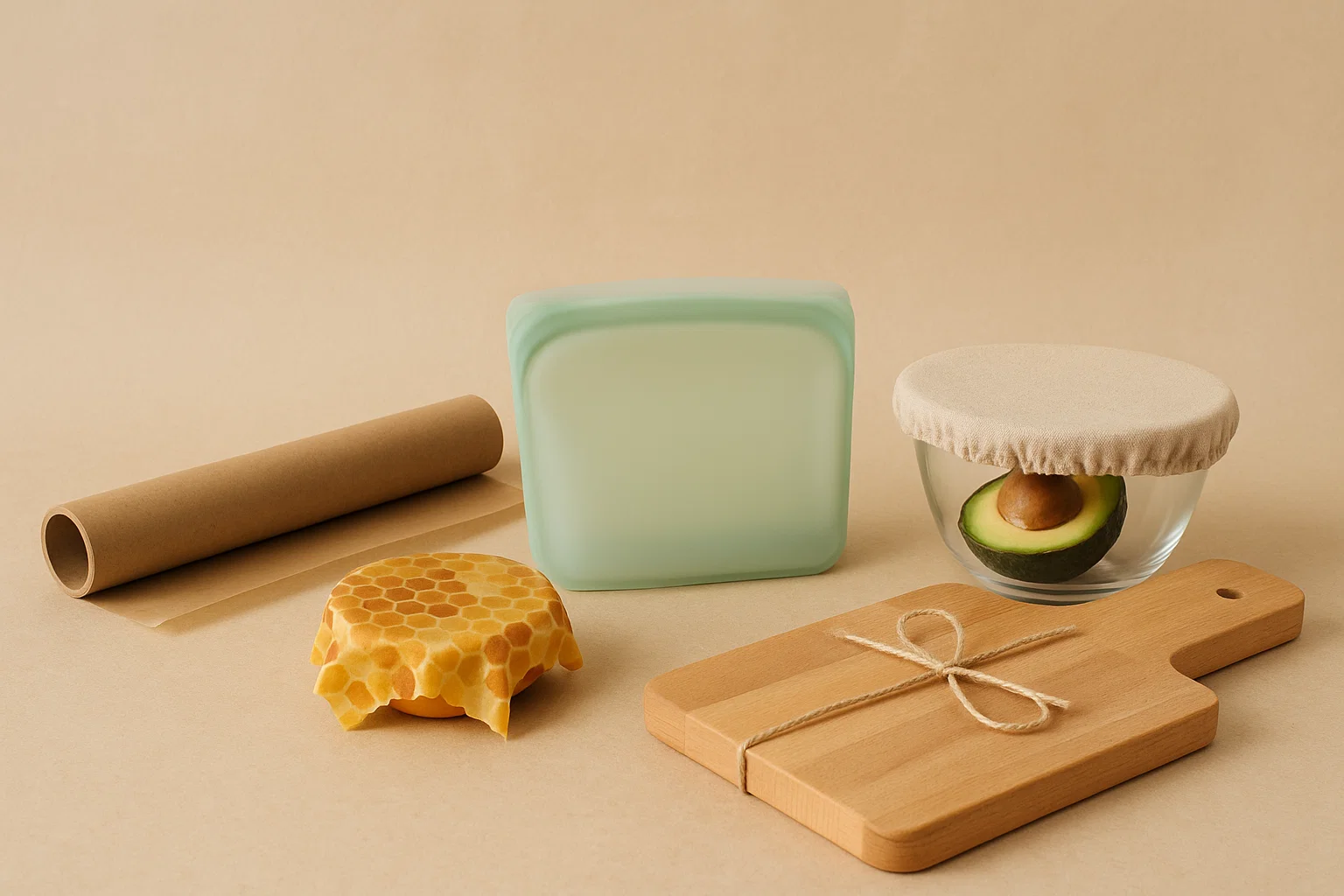
Aluminum foil has long been a staple in kitchens worldwide, prized for its versatility in wrapping food for storage, lining baking sheets, and covering dishes in the oven. However, the convenience of this seemingly indispensable product comes with a significant environmental cost. The production of aluminum is energy-intensive, requiring the extraction of bauxite ore and a complex smelting process. While aluminum is recyclable, the thin and often food-contaminated nature of used foil makes it challenging to recycle effectively, leading to a substantial amount ending up in landfills. Embracing a zero-waste kitchen necessitates a critical look at our reliance on aluminum foil and a conscious shift towards more sustainable and reusable alternatives for both cooking and food storage.
The lifecycle of aluminum foil, from mining and processing to its often single or limited use in the kitchen and eventual disposal, represents a significant draw on natural resources and energy. The energy intensity of aluminum production is particularly concerning, contributing to greenhouse gas emissions. While recycling aluminum saves a considerable amount of energy compared to primary production, the thinness and food residue on used foil often hinder its successful recycling. This means that a large portion of the aluminum foil we use ends up in landfills, where it persists indefinitely. Recognizing this unsustainable pattern, many individuals are seeking more responsible and eco-conscious ways to bake, roast, and store their food.
Fortunately, a variety of durable and readily available alternatives can easily replace aluminum foil in our kitchens, offering the same functionality with a significantly reduced environmental impact. By embracing silicone baking mats for lining baking sheets, utilizing covered bakeware for oven dishes and storage, and opting for reusable beeswax wraps for wrapping food, we can significantly reduce our reliance on single-use aluminum foil and adopt a more sustainable approach to our culinary practices. These reusable options not only minimize waste and conserve resources but can also often enhance the cooking and storage experience.
Baking and Storing Sustainably: Exploring Reusable Foil Alternatives
Moving beyond the convenience of aluminum foil opens up a world of more environmentally friendly and often more effective solutions for your kitchen:
Silicone Baking Mats: The Reusable Oven Liner
Silicone baking mats offer a fantastic and durable alternative to lining baking sheets with aluminum foil or parchment paper. Made from food-grade silicone, these mats are non-stick, heat-resistant, and can be used repeatedly for baking cookies, roasting vegetables, and more. Brands like Silpat are renowned for their high-quality silicone baking mats that can withstand thousands of uses. Simply wash and reuse these mats, eliminating the need for single-use liners and significantly reducing kitchen waste.
Covered Bakeware: The Dual-Purpose Solution
Utilizing covered bakeware provides a versatile and waste-reducing solution for both cooking and storing food. Casserole dishes, roasting pans, and other bakeware that come with their own lids eliminate the need to cover dishes with aluminum foil in the oven or for storing leftovers in the refrigerator. Investing in a set of good-quality covered bakeware reduces the reliance on single-use coverings and provides a durable and convenient way to manage your meals from preparation to storage.
Beeswax Wraps: The Moldable and Reusable Cover
Beeswax wraps, as discussed previously as an alternative to plastic wrap, also offer a sustainable solution for covering dishes and wrapping food in place of aluminum foil. Their moldable nature allows them to create a tight seal around various shapes and sizes, keeping food fresh in the refrigerator. While not suitable for high-heat oven use, beeswax wraps can replace foil for covering dishes during shorter baking times or for preventing splatters. Brands like Bee's Wrap and Unpaper offer a variety of sizes of these reusable food coverings.
Embracing a Zero-Waste Kitchen: Mindful Cooking Habits
By consciously choosing silicone baking mats, utilizing covered bakeware, and opting for beeswax wraps over aluminum foil, we can significantly reduce the amount of single-use waste generated in our kitchens and embrace a more sustainable approach to cooking and food storage. These durable and reusable alternatives not only benefit the environment but can also save you money and contribute to a more eco-conscious culinary routine.
Related Blogs
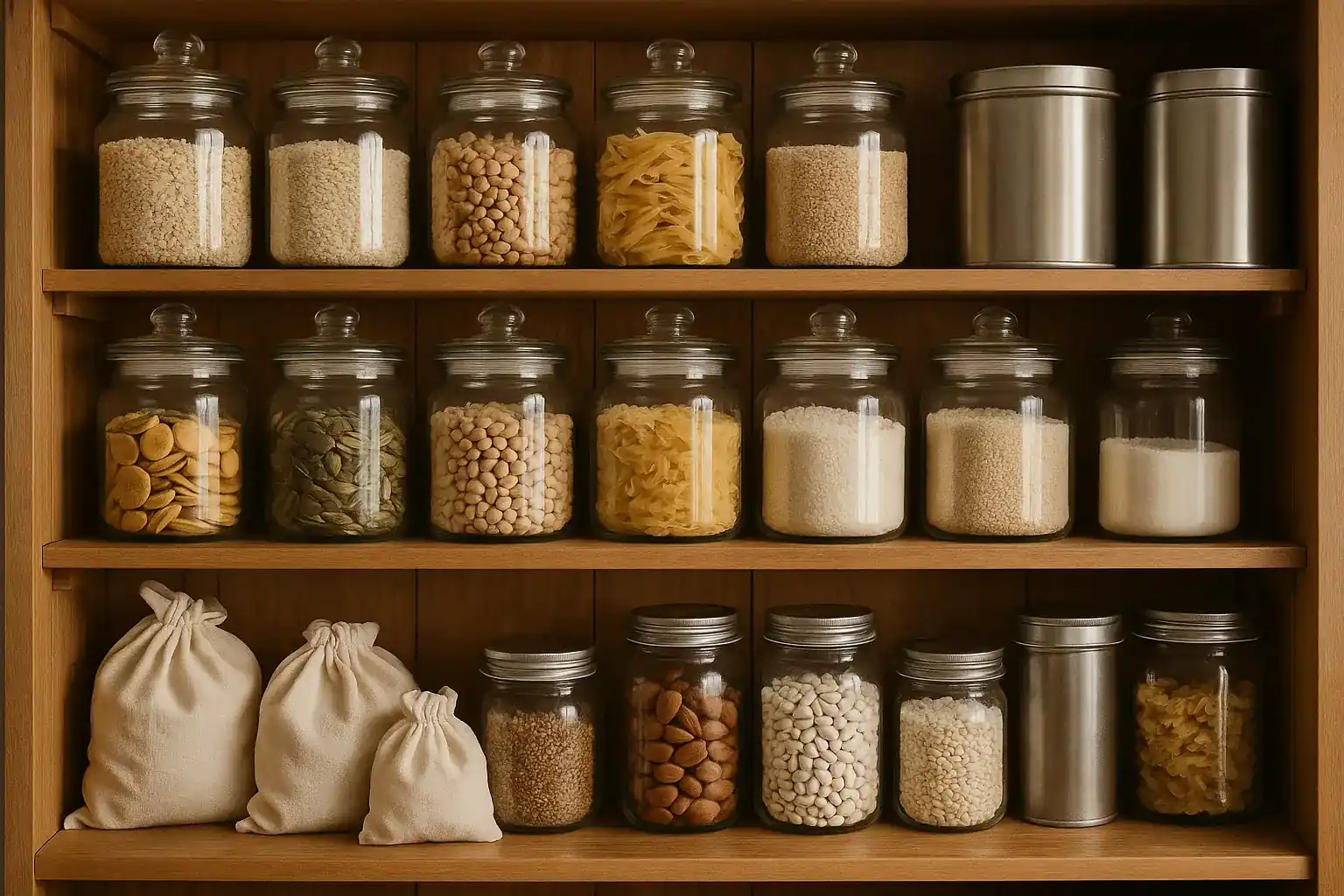
Say Goodbye to Single-Use: 10 Easy Swaps for a Plastic-Free Pantry
Insights on 10 easy swaps for a plastic-free pantry in a sustainable way.
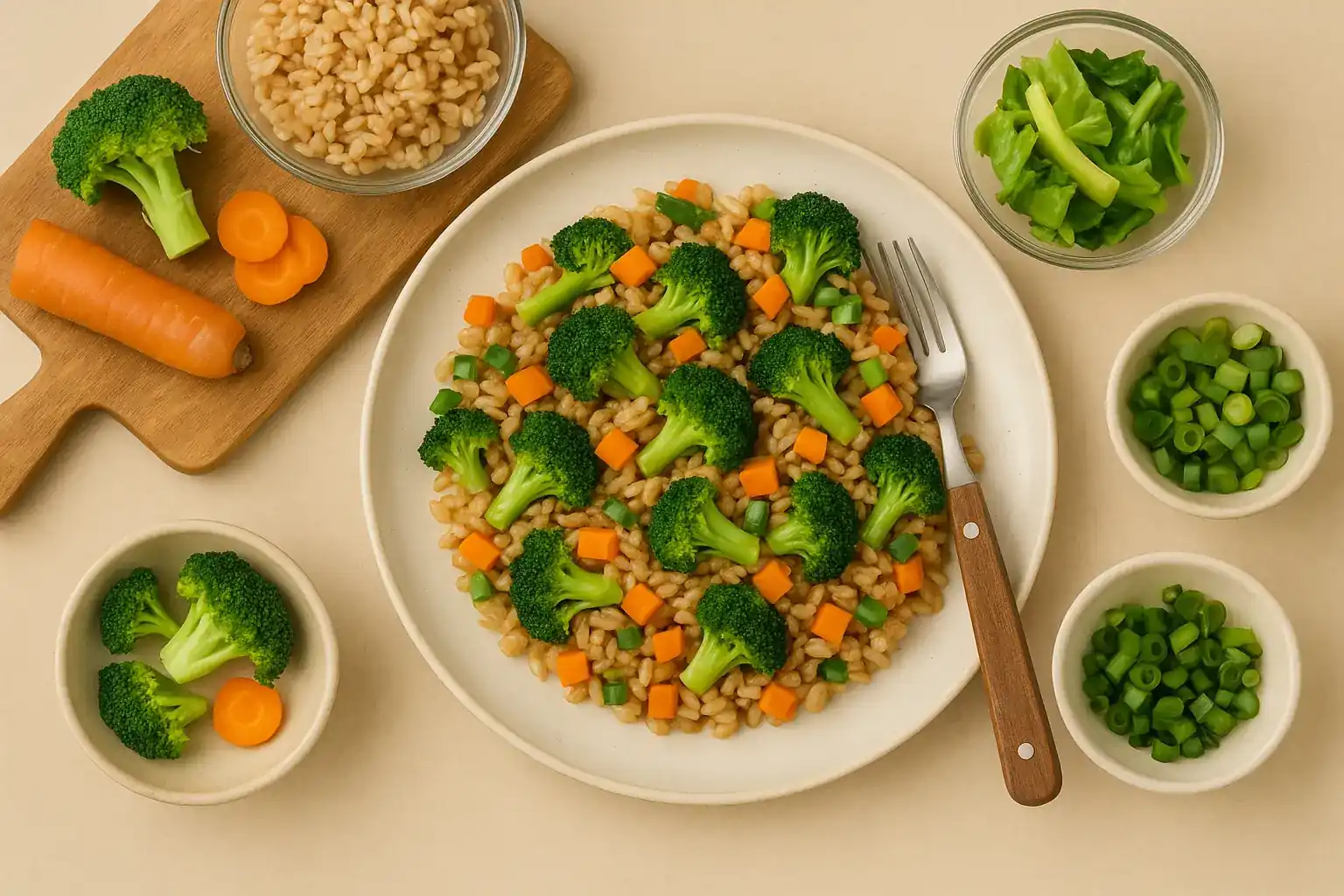
A Week of Delicious Transformations: Zero-Waste Recipes Using Your Leftovers
Insights on a week of zero-waste recipes using leftovers in a sustainable way.
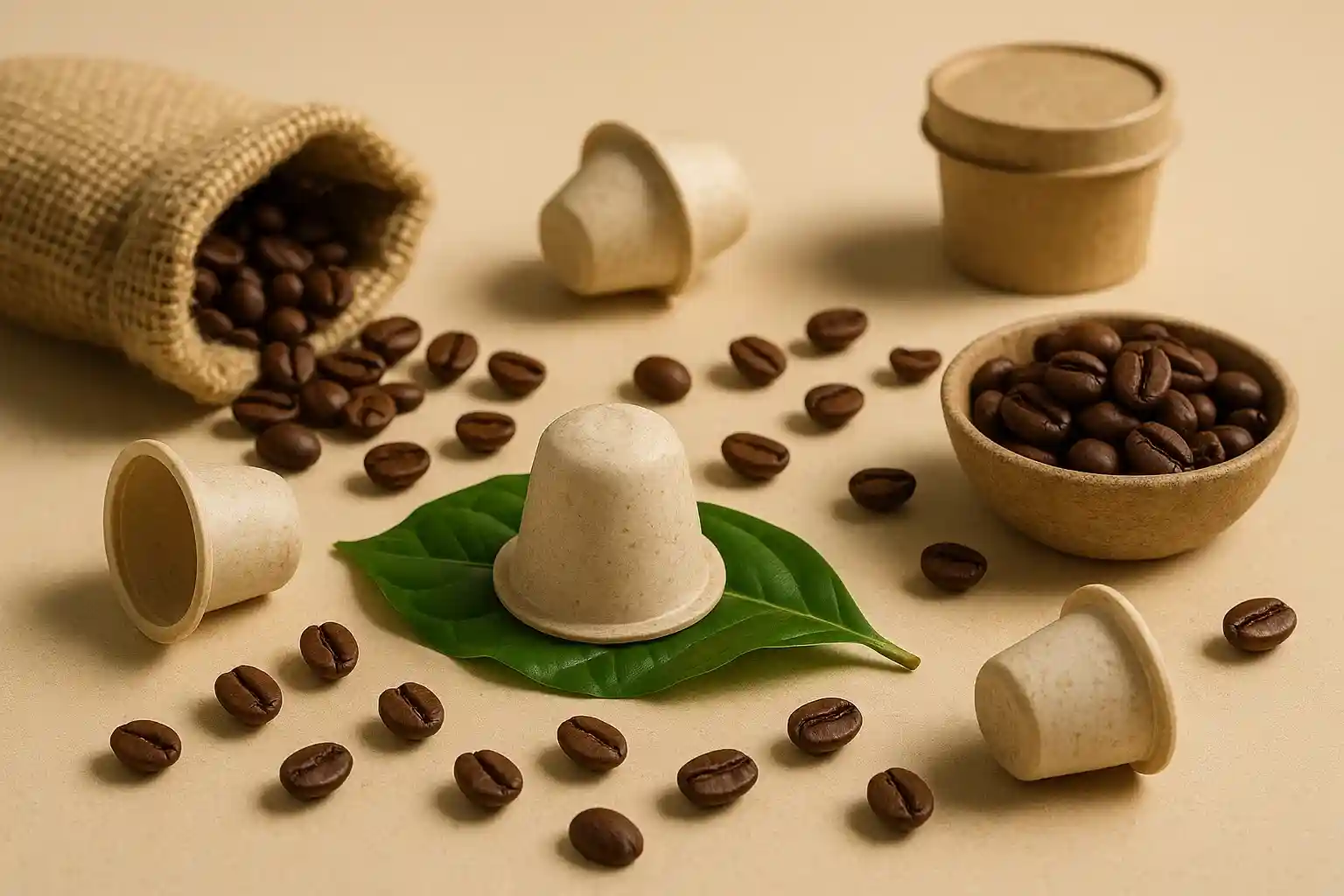
Brew Better, Waste Less: Sustainable Alternatives to Single-Use Coffee Pods
Lower waste and enjoy better flavor with reusable pods, French presses, or Moka pots.
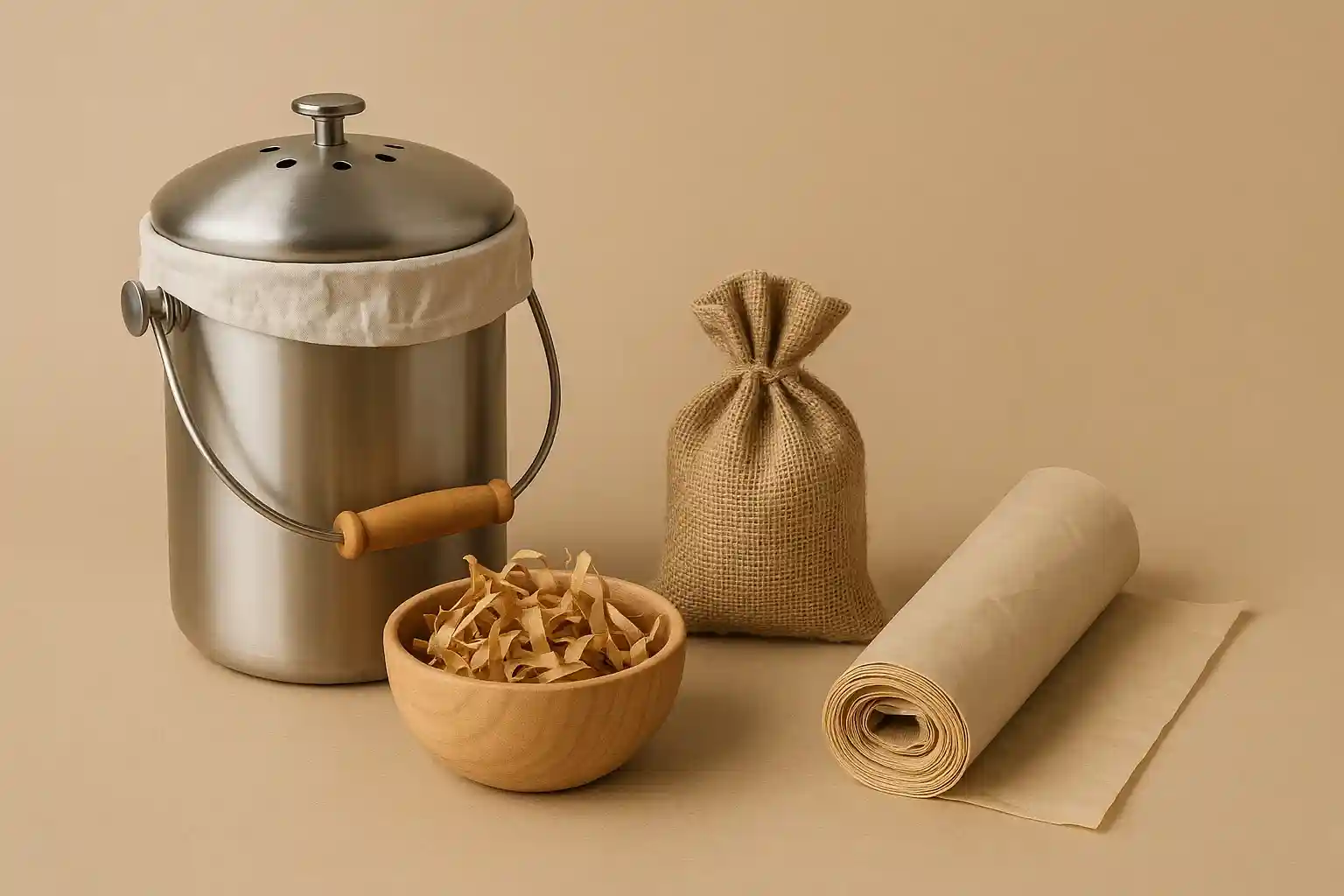
Compost Without the Carry-On: Sustainable Alternatives to Store-Bought Compost Bags
Reduce unnecessary plastic in composting with newspaper liners, bag-free bins, or DIY liners.
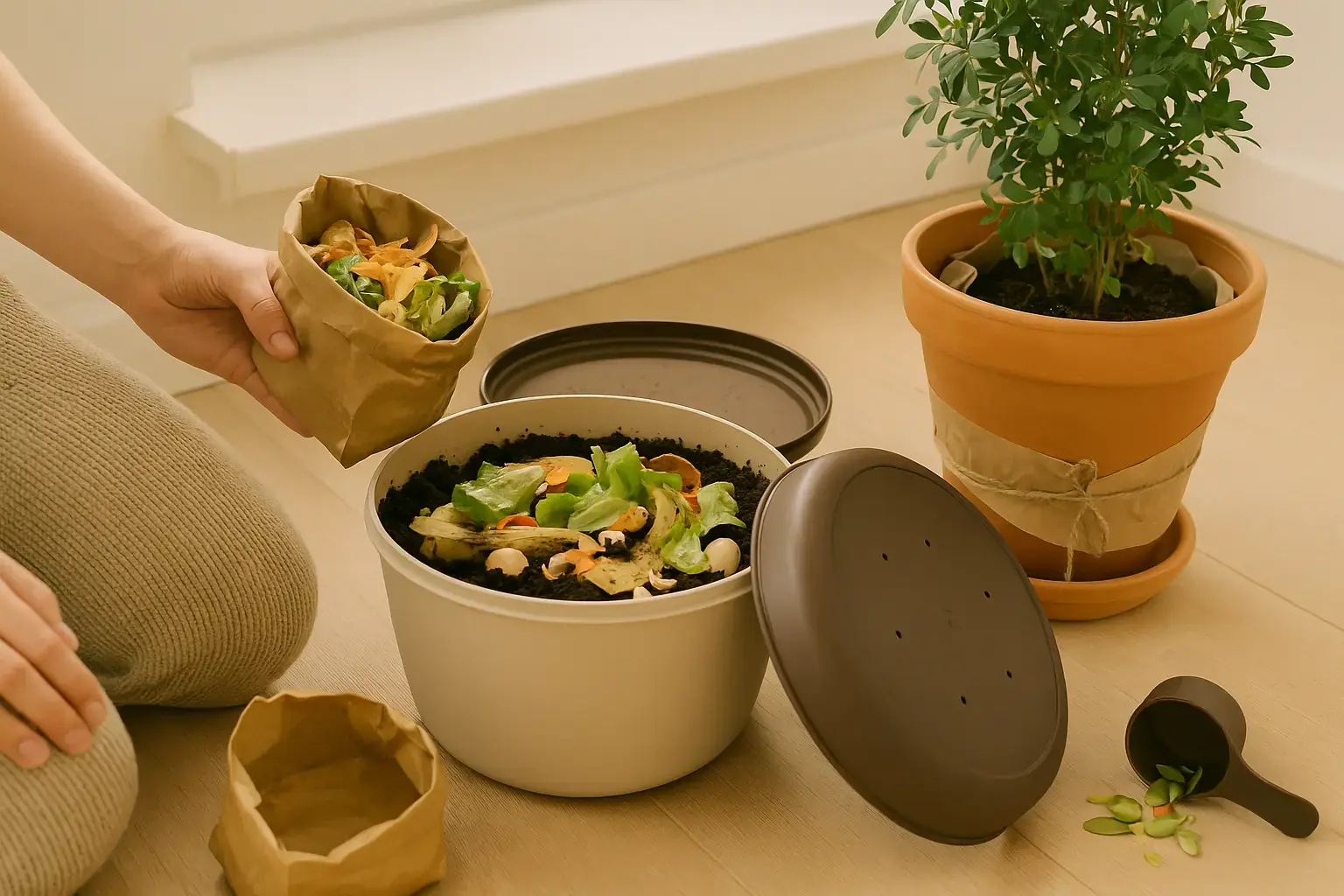
Compost Happens (Even in Apartments!): Your Beginner's Guide
Practical advice and actionable tips for composting 101.
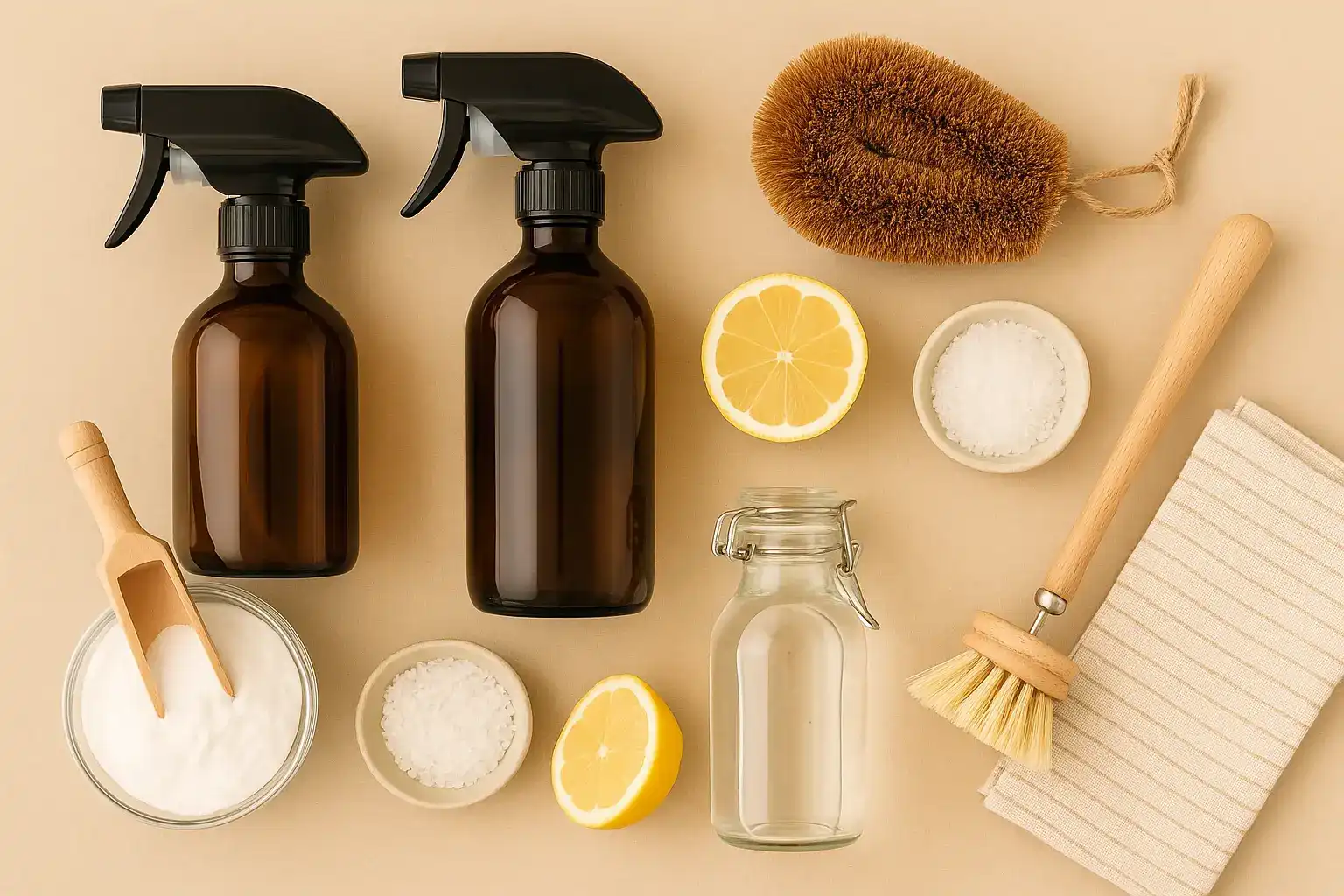
Sparkle & Shine Sustainably: DIY Kitchen Cleaners That Actually Work
Simple do-it-yourself ideas for an eco-conscious lifestyle.
Stay in the Loop
Get tips and insights tailored to your interests — no spam, just sustainability.